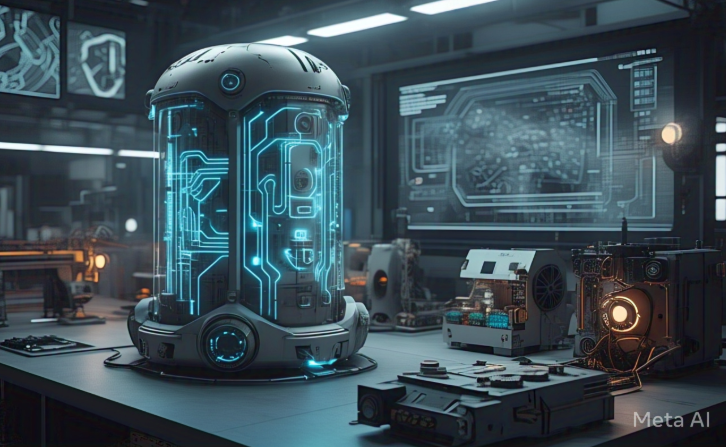 AI
AI
 AI
AI
 AI
AI
A startup called Foundation EGI says it’s ready to transform product design, development and lifecycle management with artificial intelligence agents after raising $7.6 million in seed funding.
Today’s oversubscribed round was led by investors including E14 Fund, Union Lab Ventures, Stata Venture Partners, Samsung Ventures, GRIDS Capital and Henry Ford III.Foundation EGI is the brainchild of Massachusetts Institute of Technology academics Mok Oh, Wojciech Matusik and Michael Foshey. They previously published an academic paper outlining the potential for large language models in design and manufacturing.
The trio has developed an agentic AI platform that introduces the concept of “engineering general intelligence.” It’s aimed at accelerating innovation in engineering and manufacturing industries that remain overly reliant on manual and disorganized processes, leading to major inefficiencies and regular production delays that cost as much as $8 trillion in economic waste annually.
The startup says its purpose-built agentic EGI platform is designed to transform natural language inputs, including vague and messy instructions, into accurate and structured codified programming in order to improve the accuracy and efficiency of every stage of the product lifecycle, beginning with design. It’s not trying to replace existing product design and manufacturing tools, but rather it integrates its AI agents within them to simplify how they’re used.
Matusik, a professor of electrical engineering and computer science at MIT’s Computer Science and Artificial Intelligence Laboratory, said EGI is about transforming natural language prompts into “engineering-specific language” using real-world atoms, spatial awareness and physics.
“EGI will unleash the creative might of a new generation of engineers,” he promised. “Expect leaps and bounds in agility, innovation and problem-solving.”
Foundation EGI’s platform leverages natural language programming to convert vague or unstructured commands into precise, actionable code that can help to automate design processes. In doing this, it’s able to improve accuracy and efficiency in product design processes by reducing manual input and eliminating errors. Available in beta test now, the platform is already being tested by a number of Fortune 500 industrial brands to optimize every stage of their design-to-production lifecycles.
Oh, who is the company’s chief executive, says the engineering industry is primed for an AI revolution, but it won’t be generic large language models that pave the way for such a transformation. “They lack vital, domino-specificity and are prone to inaccuracies,” he said.
Foundation EGI’s AI agents, on the other hand, have been designed specifically to automate engineering tasks, and the company’s initial focus is on automating documentation. “EGI transforms what is traditionally error-prone, manual and inconsistent into structured, sustained and accurate information and processes, so that engineering teams can not only achieve significant cost-savings but also be more nimble, productive and creative,” Oh added.
E14 Fund Managing Partner Said Habib Haddad said the timing and market conditions are just right for a company such as Foundation EGI to emerge. He believes it’s ready to solve some of the biggest and most expensive challenges for U.S. industrial manufacturing companies.
“The widespread industry appetite for enterprise AI solutions, plus the uptick in manufacturing demand, makes this a rich opportunity,” he said.
Support our mission to keep content open and free by engaging with theCUBE community. Join theCUBE’s Alumni Trust Network, where technology leaders connect, share intelligence and create opportunities.
Founded by tech visionaries John Furrier and Dave Vellante, SiliconANGLE Media has built a dynamic ecosystem of industry-leading digital media brands that reach 15+ million elite tech professionals. Our new proprietary theCUBE AI Video Cloud is breaking ground in audience interaction, leveraging theCUBEai.com neural network to help technology companies make data-driven decisions and stay at the forefront of industry conversations.